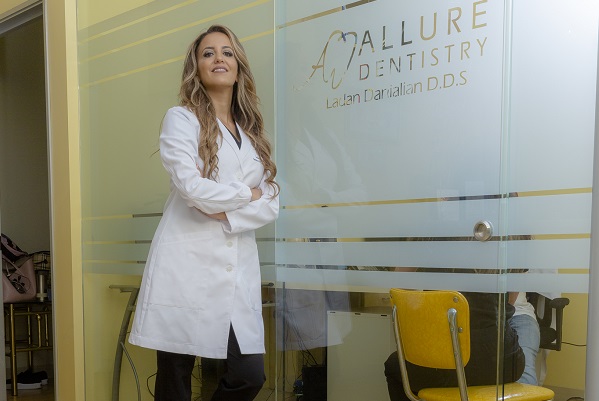What You Should Know About Gum Disease

The CDC reports that almost half of adults in the United States have a form of gum disease, also known as periodontitis or periodontal disease. For adults over 65, this number increases to 70%. This rampant disease is largely preventable, yet the subtle signs and symptoms in the early stages leave many patients unaware that they have the disease. Patients need to understand the warning signs of gum disease and how to treat it. Without treatment, periodontitis leads to tooth loss and bone destruction. This disease can also increase the risk for other health problems. Therefore, prevention and early treatment are necessary to fight this disease.
3 things to know about gum disease
Gum disease can affect patients of all ages, but it is most prevalent in adults. Those with limited access to dental care are most at risk for developing periodontitis. However, more treatments are available for this oral disease than ever before, including medications that can be administered alone or in combination with surgical or non-surgical options. While periodontitis is generally not reversible, catching it early allows the disease progression to be halted. Patients need to understand how gum disease starts and how to prevent it. When more people are knowledgeable about this disease, they can seek early treatment from a dentist or hygienist.
1. It has a link to other chronic diseases
Harvard Medical School released an article in 2021 associating gum disease with a two to three times higher incidence of a cardiovascular event. These events include heart attacks and strokes. Researchers are still studying the exact link between periodontitis and heart disease. There are several theories about the relationship, including the commonality of plaque in both conditions.
Plaque is the causative agent for periodontal disease. This biofilm serves as a reservoir for harmful bacteria. The bacteria cause inflammation, which can lead to bleeding gums and loose teeth. Similarly, in heart disease, plaque hardens in the arteries. Based on this research, scientists believe that gum disease can put someone at risk for other inflammatory conditions such as heart disease.
Research also shows a potential link between periodontitis and diabetes. In a study that followed patients over two decades, individuals with periodontal disease showed an increased rate of developing type 2 diabetes in comparison to those who did not have periodontal disease. Periodontitis has also been linked with rheumatoid arthritis and respiratory disease.
2. Environmental and genetic factors play a role in its development
Many factors cause gum disease, and no solution works for every single patient. Inadequate nutrition, including a deficiency of vitamins C and K, has been linked to the disease. Obesity is also a risk factor. Environmental issues such as poor oral hygiene, smoking, chewing tobacco, vaping, and engaging in recreational drugs also play a role in periodontitis, as do medications that result in mouth dryness.
Research shows that genetics may play a role in the development of gum disease. The American Dental Association states that scientists have found several genes that may influence periodontal disease. Certain diseases also put patients at increased risk for periodontitis, including Crohn's disease, rheumatoid arthritis, and diabetes. Regardless of the genetic factors at work, patients must commit to maintaining excellent oral hygiene to combat the disease. Patients who notice inflamed, red, or bleeding gums, bad breath, or loose teeth should see a dentist as soon as possible.
3. Treatment is possible
The most important thing for patients to learn about gum disease is that treatment can halt its progression. While no cure exists for the disease, there are many therapies to manage it. Once the bone and gum tissue surrounding the teeth is gone, it does not regenerate. Non-surgical treatments such as scaling and root planing can remove tartar from beneath the gums and smooth the root surface to discourage additional tartar buildup. Surgical options such as pocket reduction surgery, grafting of bone and soft tissue, and guided tissue regeneration can repair damage and set the stage for the replacement of bone and connective tissue.
For patients with advanced disease, tooth loss may be inevitable, which can interfere with basic functions such as talking and eating. However, dentists can recommend tooth replacement options for aesthetic and functional concerns.
Conclusion
Some patients are at higher risk for gum disease, whether it be from environmental or genetic factors. However, gum disease is largely treatable when it is detected in its early stages. Proper oral hygiene habits and regular professional cleanings and examinations will help to prevent the development of this common disease. Patients wanting to learn more about treatment for this condition should set up a consultation with a dentist today.
Request an appointment here: https://www.alluredentistry.com or call Allure Dentistry at (310) 683-5321 for an appointment in our Los Angeles office.
Check out what others are saying about our dental services on Yelp: Gum Disease in Los Angeles, CA.
Recent Posts
Gum disease is one of the most common oral health issues. Many individuals, however, are unaware that they are dealing with the condition. Gum disease is believed to affect millions of adults in the United States, according to the International Journal of Health Sciences. Many people who do not currently have gum disease may develop…
Dentists recommend proper oral hygiene from a young age to achieve good dental health for a lifetime. This is important for cosmetic reasons, but also to maintain overall health. One of the consequences of not brushing and flossing correctly is gum disease, which is also known as periodontal disease. This condition originally affects the gums,…
If you have gum disease, you might notice there is bleeding when you floss or brush. That is a red flag you should not ignore because of how severe the condition is. It is critical to understand how to know if you have the disease. Keep reading to learn more about gum disease and how…
Oral health issues like gum disease can make each day painful and uncomfortable. Call us for more info.When it comes to your oral health, proper oral hygiene and regular checkups at our dental office can help prevent gum disease. Even if the early symptoms of gum disease don't seem to cause any pain, prompt treatment…

